NEWS
U.S. House approves resolution on Chibok girls and Boko Haram
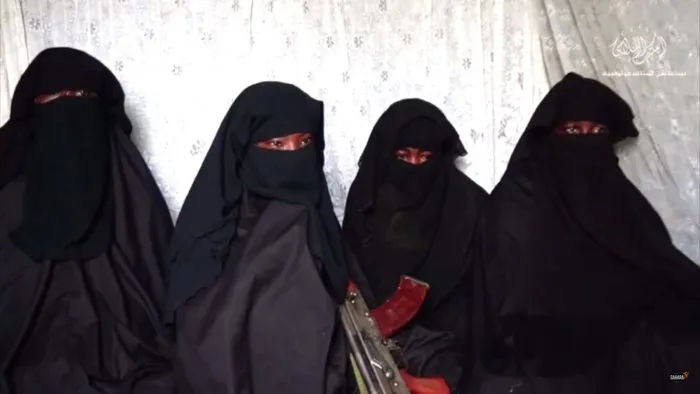
The United States House of Representatives has called upon the Nigerian and U.S. governments to ensure that the remaining Chibok girls kidnapped a decade ago are rescued and reunited with their families.
The House disclosed this in a document issued on 12 April following its 118th congress.
Recounting the tragic midnight event of 14 April 2014 when Boko Haram insurgents seized 276 girls from a boarding school in Chibok, Borno State, the congress urged the Nigerian government to “redouble efforts to bring an end” to spiralling armed conflicts ravaging northern Nigeria.
It further advised the government to provide assistance to the victims of the conflicts.
A few days after the insurgents abducted the girls from their dormitories, 57 of them brazenly jumped off the trucks conveying them into the terrorists’ enclave in Sambisa forest.
Amina Ali Nkeki who now studies journalism in a university in Adamawa State was the first to return home [with a girl child] in 2016. That same year, 22 others regained their freedom. Although one of them, Maryam Ali-Maiyanga, was found wandering around the forest, the other 21 were negotiated for.
Between 2017 and 2023, additional 104 have either escaped captivity or been rescued by the military, bringing the total of the girls that have made it home to 184, according to a compilation by Murtala Muhammed Foundation.
Concerted efforts by parents of the girls and Nigerians later birthed mass awareness — #BringBackOurGirls, a social movement that reached more than 440,000,000 people around the world, according to U.S. House of Representative estimates.
Despite these efforts, more than 90 girls are still missing, although some of them have been reported dead by their colleagues who recounted their experiences after regaining freedom.
However, Nigerians, local and and international non-governmental organisations including foreign governments are demanding their safe return.
10 years after, U.S. House worried, makes six demands
As it marked 10 years without more than 90 Chibok girls, the congress lamented the spate of abductions targeting students, especially girls, and made six demands to the Nigerian and U.S. governments.
First, it called for the “immediate release of all Boko Haram captives, especially the remaining Chibok girls and Leah Sharibu.”
Miss Sharibu was one of more than 100 girls kidnapped from their school in Dapchi, Yobe State, in 2018. While the terrorists released other captives, they continued to hold Miss Sharibu because of her refusal to deny her Christian faith.
While extolling the survivors of violence in northern Nigeria for mustering courage to tell their stories “at great personal risk”, the enjoined the Nigerian government to cooperate with “regional partners and the international community” to defeat Boko Haram and other terror groups.
In its third demand, the congress also urged the Nigeria government to:
- prioritise the recovery of women and girls who have been abducted and enslaved by Boko Haram.”
- work to determine the whereabouts of the thousands of missing people in Nigeria and provide a full accounting of the number of missing girls;
- undertake concrete efforts to reduce the stigmatisation and marginalisation of those abducted by Boko Haram and provide counselling and support.
- to allow women and girls to be reunited with their families whenever appropriate and
- accept international assistance in a timely manner when offered.
In addition, the U.S. House said it encourages “continued efforts by the U.S. Government to defeat Boko Haram and related terrorist groups through development and security partnerships with Nigeria and other regional partners.”
The congress also called on the U.S. Department of State and the Department of Defence to “rapidly implement the 5-year regional strategy required under Public Law 114–266 to address the grievous threat posed by Boko Haram and other violent extremist organisations.”
Lastly, it requests that the U.S. Department of State “track and report the number of missing persons kidnapped by Boko Haram and include such information in its annual Trafficking in Persons Report.”
From Islamic sect to terror group: Boko Haram’s reign in Nigeria
Boko Haram under the leadership of Mohammed Yusuf was founded in the early 2000s as an Islamic sect to propagate against western education.
Mr Yusuf created the group at a time fair access to economic opportunities was a concern to many Nigerians. His propagation of Islam and extreme preachings against non-Muslims gained him followership in north eastern states of Adamawa, Bauchi, Borno and Yobe.
But Mr Yusuf was summarily executed in July 2009 after he was interrogated by police operatives. Hitherto, his group has become famous and notorious for their frequent confrontations with security forces.
After his death, Abubakar Shekau whom Mr Yusuf had confirmed as his lieutenant, took over leadership of the group and declared a “holy war” against Nigeria.
“This is a message to President Goodluck Jonathan and all who represent the Christians,” Mr Shekau had said in 2010. “We are declaring a holy war! We will fight the Christians, because everyone knows what they have done to the Muslims!”
Boko Haram’s reign of terror under Mr Shekau had claimed more than 300,000 lives by the end of 2020, according to a UN estimate.
On 19 May 2021, Shekau blew himself up during a battle between his group and Islamic State West Africa Province (ISWAP) in Sambisa forest.
Led by Abu Musab al-Barnawi, ISWAP broke away from Boko Haram in 2016 over ideological differences and pledged loyalty to Islamic State. The latter group, according to analysts, diminished the influence of the former.
Mr al-Barnawi who was also the son of Boko Haram founder was killed in August 2021. He was aged 26.
(PREMIUM TIMES)
-

 JOBS/SCHOLARSHIPS2 days ago
JOBS/SCHOLARSHIPS2 days agoMTN Nigeria massive recruitment 2025
-

 ENTERTAINMENT2 days ago
ENTERTAINMENT2 days ago“I made 70 million naira in 3 days from fighting Speed Darlington” – Portable
-
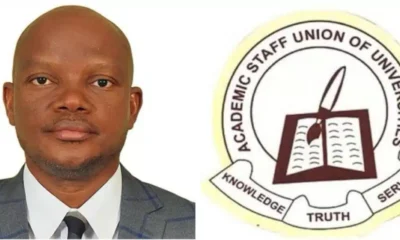
 CAMPUS REPORTS2 days ago
CAMPUS REPORTS2 days agoASUU elects new president
-

 NEWS2 days ago
NEWS2 days ago“Nigeria, Africa can thrive only if we tackle corruption, rascality in governance” – Peter Obi
-

 POLITICS5 days ago
POLITICS5 days agoTinubu request land in Anambra to build, bags chieftaincy title
-

 SPORTS2 days ago
SPORTS2 days agoRodrygo opted out of El Clásico amid Real Madrid exit speculation
-
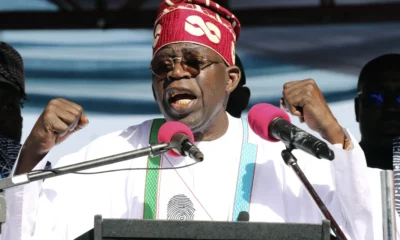
 EDITORIAL2 days ago
EDITORIAL2 days agoBola Ahmed Tinubu: His Leadership, Benefits, and Challenges Overview of Tinubu’s Political Career
-

 ENTERTAINMENT2 days ago
ENTERTAINMENT2 days ago“I don’t believe in marriages” – Lil Kesh
-
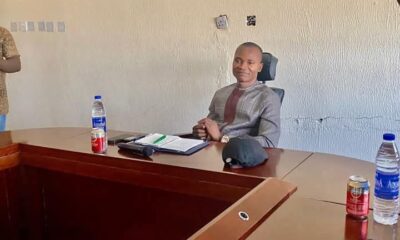
 POLITICS6 days ago
POLITICS6 days agoEbonyi Lawyer who defamed Deputy Speaker, tenders apology
-
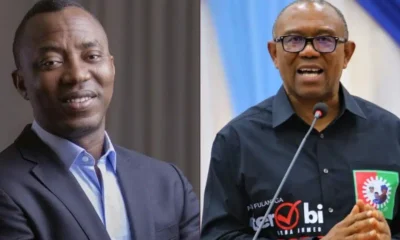
 POLITICS2 days ago
POLITICS2 days agoTinubu’s regime enjoys Peter Obi’s kind of spineless opposition – Sowore
-
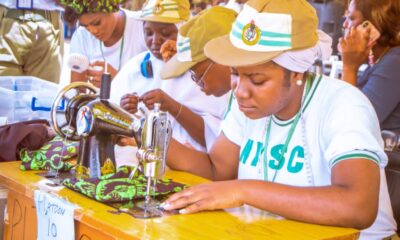
 INSIDE NYSC4 days ago
INSIDE NYSC4 days agoNYSC Lagos Camp Concludes SAED Programme with Corpreneurship Competition
-
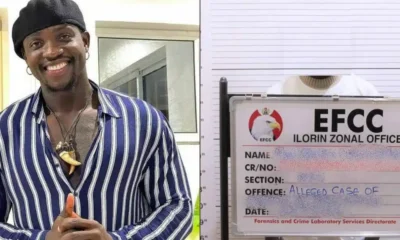
 ENTERTAINMENT4 days ago
ENTERTAINMENT4 days agoDon’t release my ‘money laundering’ mugshot, Verydarkman warns EFCC














